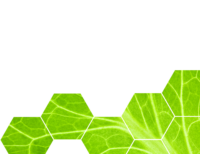Healthy and sustainable food consumption is a key component of the EU’s transition to a sustainable food system. The food environment shapes food consumption: it is where food is acquired and eaten, where food is chosen. Until now, the main policy focus in the EU has been on providing consumers with more information, for them to make healthy and sustainable food choices. But this is not enough. People choose food not just through rational reflection, but also based on many other factors: food availability, habits and routines, emotional and impulsive reactions, and their financial and social situation.
The EU’s food environment is diverse, including shops, restaurants, homes, schools and workplaces, as well as informal settings such as home-grown food. Increasingly, it also includes digital media. Many Europeans in their daily lives navigate and move seamlessly across various combinations of these settings, and experts warn that non market-based food systems should not be overlooked. They not only continue to have importance in Eastern and Southern European countries as legacies of their recent rural histories, but are also gaining traction everywhere in Europe as places of social innovation and experimentation to mitigate the effects of economic, climate, energy, food and sanitary crises.
This event will discuss the role of informal and alternative food chains and networks in Europe in the needed shift to healthier and more sustainable food consumption, and how EU policies can support those.
The discussions will be inspired by a recent advice issued by the Scientific Advice Mechanism to the European Commission on the request of College of Commissioners. Two reports focusing on a question “what tools could be used at EU level to overcome the barriers preventing consumers from adopting sustainable and healthy diets” were published on 28 June 2023:
- Evidence Review Report “ Towards sustainable food consumption”
- Scientific Opinion “Towards sustainable food consumption”
